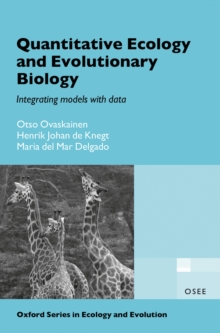
Cooperation among Animals : An Evolutionary Perspective PDF
by Lee Alan Dugatkin
Part of the Oxford Series in Ecology and Evolution series
Description
Despite the depiction of nature "red in tooth and claw," cooperation is actually widespread in the animal kingdom.
Various types of cooperative behaviors have been documented in everything from insects to primates, and in every imaginable ecological scenario.
Yet why animals cooperate is still a hotly contested question in literature on evolution and animal behavior. This book examines the history surrounding the study of cooperation, and proceeds to examine the conceptual, theoretical and empirical work on this fascinating subject.
Early on, it outlines the four different categories of cooperation -- reciprocal altruism, kinship, group-selected cooperation and byproduct mutualism -- and ties these categories together in a single framework called the Cooperator's Dilemma.
Hundreds of studies on cooperation in insects, fish, birds and mammals are reviewed.
Cooperation in this wide array of taxa includes, but is not limited to, cooperative hunting, anti-predator behavior, foraging, sexual coalitions, grooming, helpers-at-the nest, territoriality, 'policing' behavior and group thermoregulation.
Each example outlined is tied back to the theoretical framework developed early on, whenever the data allows.
Future experiments designed to further elucidate a particular type of cooperation are provided throughout the book.
Information
-
Download - Immediately Available
- Format:PDF
- Publisher:Oxford University Press
- Publication Date:06/02/1997
- Category:
- ISBN:9780195358803
Information
-
Download - Immediately Available
- Format:PDF
- Publisher:Oxford University Press
- Publication Date:06/02/1997
- Category:
- ISBN:9780195358803










